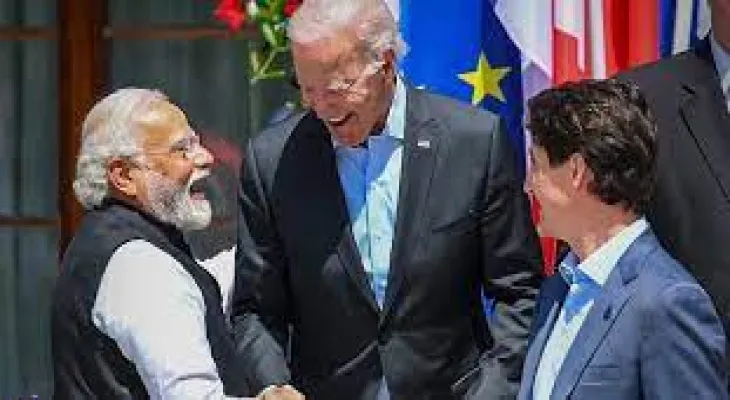Search here
Newspaper
Search here

Arab Canada News
News

Published: December 6, 2023
The alleged role of India in assassination conspiracies across North America has sparked rare criticism within the US Congress of a country often considered an increasing ally of the United States.
This was mentioned several times during a hearing on cross-border repression held on Wednesday in the US Senate, where lawmakers mostly focused on human rights violations by China, Russia, and Iran.
The hearing included what could be the most detailed condemnation from any prominent American politician regarding allegations of assassination conspiracies supported by India.
Senator from Virginia Tim Kaine said during a meeting of the US Senate Foreign Relations Committee: "We often say we are the oldest democracy in the world - and the largest democracy is India." "This is not the behavior of a respectable democracy.
At the beginning of the session, the committee chairman, a Democrat, hinted at allegations in Canada and the US that the Indian government was linked to assassination plots against Sikh separatists.
It was also mentioned by the top Republican, before moving to the main focus of the hearing: US competitors who usually threaten or harm political dissidents abroad.
Kaine made extended remarks at the end of the session. The former Democratic vice presidential candidate began by reading from a Wall Street Journal article describing links between the American and Canadian assassination conspiracies.
Kaine said: "It is very disturbing, to say the least."
He pointed with interest to India’s denial after Prime Minister Justin Trudeau first made allegations that India was connected to the killing of Hardeep Singh Nijjar in June in Surrey, British Columbia.
Kaine compared that to India’s response to American allegations that an Indian official was involved in a failed attempt to kill an American citizen in New York City.
India has now expressed concern about the American case and promised to conduct some sort of investigation, although the details remain unclear. Kaine said: "Their comments have been somewhat more reasonable [in response to the US case]."
He then hinted at the proverbial elephant in the room: India is seen as a growing geopolitical partner of the United States as it prepares for potential long-term competition with China.
Criticizing India is not easy for American officials. In fact, US officials have made terse statements about these cases since September, expressing concern and support for Canada, while holding countless private meetings, but their public comments have been measured.
Kaine said: "How do you deal with this behavior when it comes from a country we might put in the adversary camp - China, Iran, and others." "How do you deal with it when it is a country we are partnering with."
He posed this question to Michael Abramowitz, president of Freedom House, which produces the annual Freedom in the World index.
The index recently downgraded India from its category of free countries to partly free, with a graded score across several criteria. This decline has been seen in many countries, including the United States.
Abramowitz said his group sees two worrying trends. The first is the spread of authoritarian rule in recent years. The other reason, he said, is the decline of democracies.
He said, "Obviously, India is one of the cases where this kind of decline has happened," describing the Indian state's behavior abroad as an example of this."
Comments